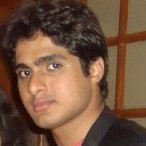
Whose face are we trying to save?
Rukhsana's conduct is a disturbing portrayal of gratitude towards a woman who highlighted her dilemmas globally.
Bina Shah has raised some pertinent points in her op-ed for The Express Tribune. Refusing to accept the allegations levelled against Sharmeen Obaid-Chinoy, she implies that Rukhsana is being threatened by her family to claim financial compensation from the documentary film-maker.
More significantly, Bina asserts that this reality has been obscured by the elite-bashing and a more cohesive approach is needed to understand this issue.
Ironically, the op-ed has been criticised for propagating the same elitist narrative that it condemns. This reflects the inconvenient truth about our nation being constantly obsessed with defending the underdog rather than objectively examining the facts.
While I admit that Rukhsana’s plight reflects a serious human rights violation, Sharmeen Obaid-Chinoy is not her perpetrator.
Instead she is the dynamic force that has brought Rukhsana’s traumatic story to an international audience. The culprits, in this case, are the socio-economic problems that plague the common man and the prevalent position of patriarchy in our society which threatens women into submission.
These have produced an array of challenges which have led the couple to seek financial compensation through unscrupulous means from Sharmeen Obaid-Chinoy. Rukhsana and her husband are demanding a five-marla (126 square-metre) house, Rs3,000,000 and plastic surgery to compensate them for their roles in the film.
Some observations can be drawn from the evidence that is available to us in relation to this conundrum.
It must be noted that prior to filming, Rukhsana and her husband agreed to appear in Saving Face and were asked to sign a consent form. As a result, they were aware of the nature and content of the documentary and willingly decided to make an appearance in it.
While Rukhsana and her husband expected to receive financial compensation for featuring in the documentary, this is not a common practice, or even a point of law to sue the film-maker, unless it had been promised to her in writing.
According to Sharmeen, no such promises were made. Quite the opposite, however, took place; a donor for the film offered to buy the couple a house to which, Rukhsana and her husband refused– ostensibly with the intention of extorting more money from the Oscar award-winning film-maker. Although it isn’t fair to presuppose anyone’s intentions in such matters, but Rukhsana’s sudden change of attitude towards Saving Face opens up a portal to such assertions.
[[http://www.youtube.com/watch?v=DvJb56HJ8Z8&feature=player_embedded]]
When the documentary was released, she was delighted that someone had finally summoned the strength to portray such forms of exploitation as a raw and searing reality. Rukhsana’s recent diatribe against Sharmeen is in direct contradiction to her adulation for the film. This sudden change of heart reveals the shocking degree to which female exploitation pervades in our society. However, it does not come as a surprise as many women are victims of domestic abuse and subsequently accept such maltreatment as their destiny.
On the flip side of the coin, Saving Face presents an honest appraisal of how Rukhsana’s husband used brute force to ensure that she does not walk out on him and even threatened to separate her from her daughter. Call it scepticism or even a mere conjecture, but it seems all the more likely that Rukhsana’s husband has exerted extreme pressure on her to tarnish Sharmeen Obaid-Chinoy’s reputation in hopes to extract money from her.
Despite the fact that people sympathise with Rukhsana for the quagmire she finds herself in, her conduct is a disturbing portrayal of gratitude towards a woman who highlighted her dilemmas on a global scale.
But it would be completely unjustified to attribute blame to Rukhsana entirely. After all, she is merely a victim who is weighed down by the social pressure to conform.
According to the evidence put forward by Sharmeen Obaid-Chinoy, the complainant changed her mind about having Dr Mohammad Jawad perform plastic surgery on her. Why she decided to reject such an offer remains a mystery although anyone with common sense would safely infer that her family played a role in persuading her to back out.
In light of the evidence provided thus far, rumours about Sharmeen Obaid-Chinoy’s unscrupulous conduct are just plain hogwash. In fact, she tweeted that Rukhsana is a victim and needs help.
It is easy to point fingers and distort this issue into a battle between the elitist mindset and the overall interests of the poor and downtrodden. But the issue is far more intricate. It requires us to understand that justice is not a question of winning or losing. On the contrary, it is about balancing competing interests in an acceptable and pragmatic manner. As events unfold, both Sharmeen and Rukhsana stand the risk of being defamed or, to put it in another sense, having their human rights infringed.
To ensure that the right balance of justice is achieved a more detailed enquiry is needed to unravel the complexities of the issue. At this stage, it seems that those who are rallying in support for Rukhsana have embarked on a futile cause that threatens to perpetuate the exploitation of women and conceals the evil machination of a man who is using his wife for a financial gain.
This raises a critical question about our priorities as a society.
Whose faces are we really trying to save?
The face of an oppressed woman who allows herself to be used as a pawn by her abusive husband or the face of a woman who has shown a strong commitment to bringing forward the interests of several oppressed women?
It is vital that we answer this question not just for ourselves, but also for the women caught in this ugly tug of war.
Read more by Taha here or follow him on Twitter @TahaKehar




COMMENTS (48)
Comments are moderated and generally will be posted if they are on-topic and not abusive.
For more information, please see our Comments FAQ